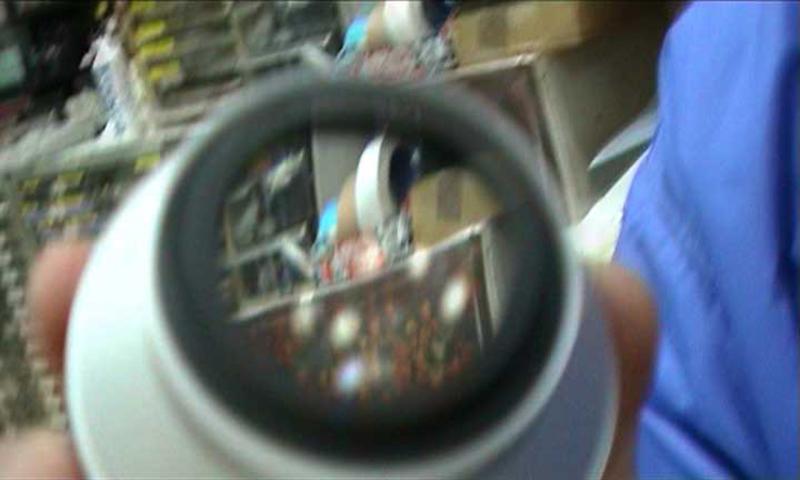
Celestial Night is a film on visibility and questions what it means to see. It is a film about what is invisible apart from the imagination: Celestial Night is a film dealing with this vital power, the ability to envision. It is a search in present day Japan for the mythical Japanese Emperor Amayonomikoto who was blind, and the story of a time when seeing was not believing. How could someone who was blind rule over someone who could not see? Who is, when push comes to shove, seeing for real? It is also a story viewed through the optics of today's high visual culture, epitomized in Japan's world leading position in audiovisual equipment. A film told by a tourist overexposed by a strange place, seen for the first time, yet armed with one of these ever-present HandiCams, which for some, significant, reason is so important for today.
The film is composed as a string of sequences connected by metaphors and associations. It is a personal attempt to grasp and expose vision. In this sense it is not an objective historical research. It is a film that poses questions and hopefully awakes the spectator's consciousness of seeing.
The film is composed as a string of sequences connected by metaphors and associations. It is a personal attempt to grasp and expose vision. In this sense it is not an objective historical research. It is a film that poses questions and hopefully awakes the spectator's consciousness of seeing.
| Original title | Himmelnattens kejser |
|---|---|
| Danish title | Himmelnattens kejser |
| Other titles | En film om synlighed |
| Keywords | Blindness, Japan, Sense of sight |
| Director | Michael Madsen |
| Editor | Steen Johannessen |
| Production country | Denmark |
| International sales | Galleri Tusk |
| Technical info | color |
| DFI subsidy | Konsulentstøtte |
| Danish rating | Allowed for all |
Companies |
|
| Production company | Galleri Tusk |
|
|
|
Direction |
|
| Direction | Michael Madsen |
|
|
|
Production |
|
| Production | Steen Johannessen |
|
|
|
Editing |
|
| Editing | Steen Johannessen |
|
|
|
Watch the film